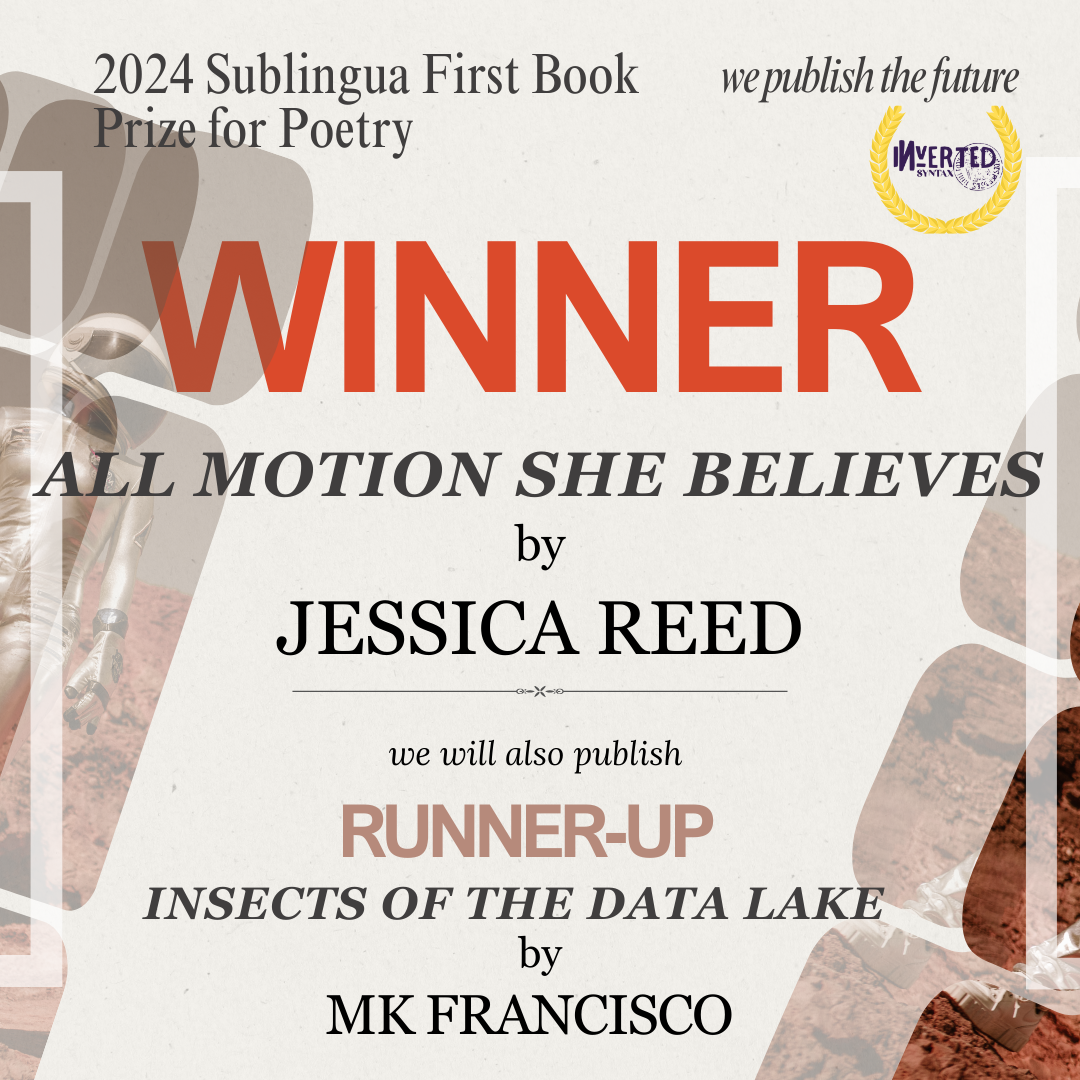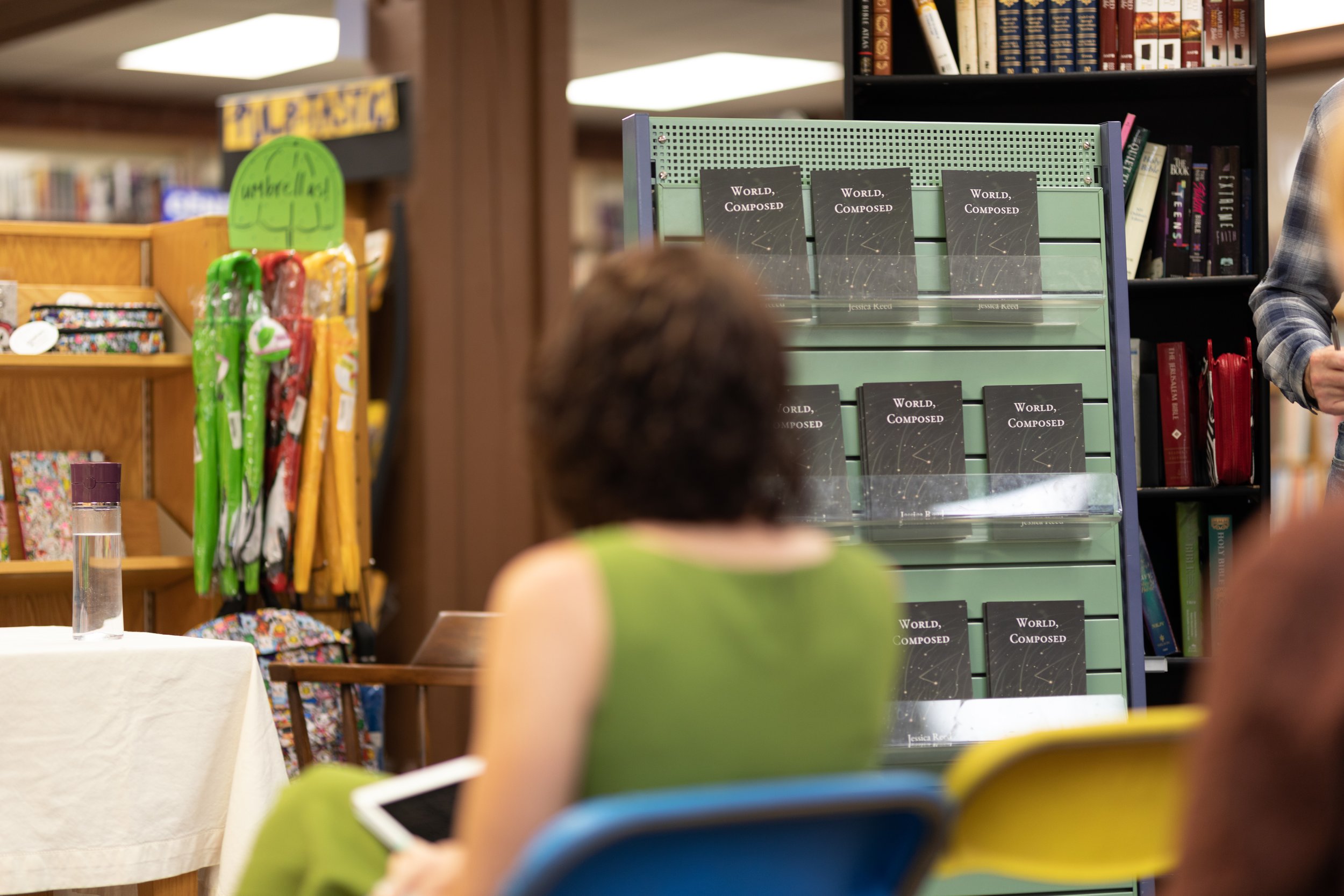Books
Still Recognizable Forms
(Laurel Review/Greentower Press, co-winner of the 2021 Midwest Chapbook Contest)
World, Composed
(chapbook, Finishing Line Press)
Because she focuses on the given world, and knows how to know it, even this statement is poetry when Jessica Reed writes it: “We must believe this: /there are no old or new electrons.” Her voice, this new voice, is exciting, not in the clichéd sense we often use the word, but in the technical sense that her voice causes new vibrations, causes new energies to arise in language. Reed knows how poetry needs to work in an age of skepticism: “Still we devise ways to reveal what we are fully immersed / in, to spy on god.” World, Composed is a new but already necessary book.
–Bin Ramke
In World, Composed Jessica Reed explores with lyric beauty and patient observation the seemingly counterintuitive relationship between solidity and probability. Like atoms, her poems are both delicate and immense, her graceful lines written in a kind of invisible ink that reading them exposes. Here, a despairing mathematician moves between dust and God, looking for proof, there, a woman studies the fracture properties of coconuts, both grasping for something, while Reed writes poems, studying—maybe even creating—the form and structure that the invisible world promises. Of course, language is invisible, too, until it’s discovered. Because they are “pointing, indispensable,” she writes, “We need our words.”
–Amy Newman
Jessica Reed has composed a world here—or it’s composed her, and in turn any reader who dreams through this book. “Once, god had birds’ eyes/ saw every ultraviolent latch and hook, wheel and paddle,” this poet tells us straightaway, and we believe her love of radiance and dark, her wonder at how everything moves. For she has a compelling, near-x-ray vision, can see on the countertop the lemon’s atomic “trembling parts” as clearly as “fissures” on eggshell reveal “time’s forward arrow.” Which is to say, this collection is a celebration of the visible and invisible. Apples, the sound of “wood splitting,” electric light “stitching and unstitching the not-us”—Reed names these worldly gifts with such relish.
–Marianne Boruch
Reading in Salem, Oregon in 2018.



